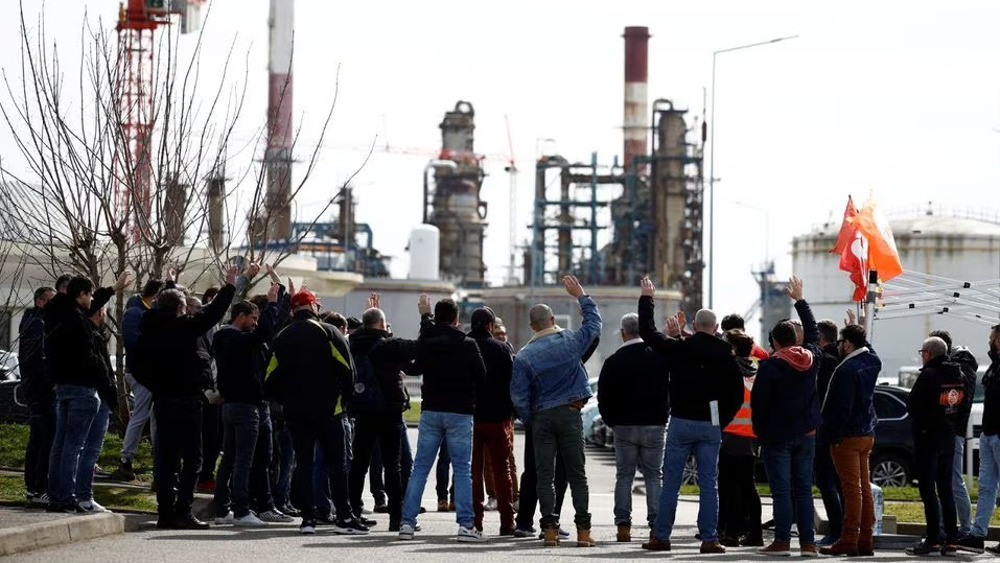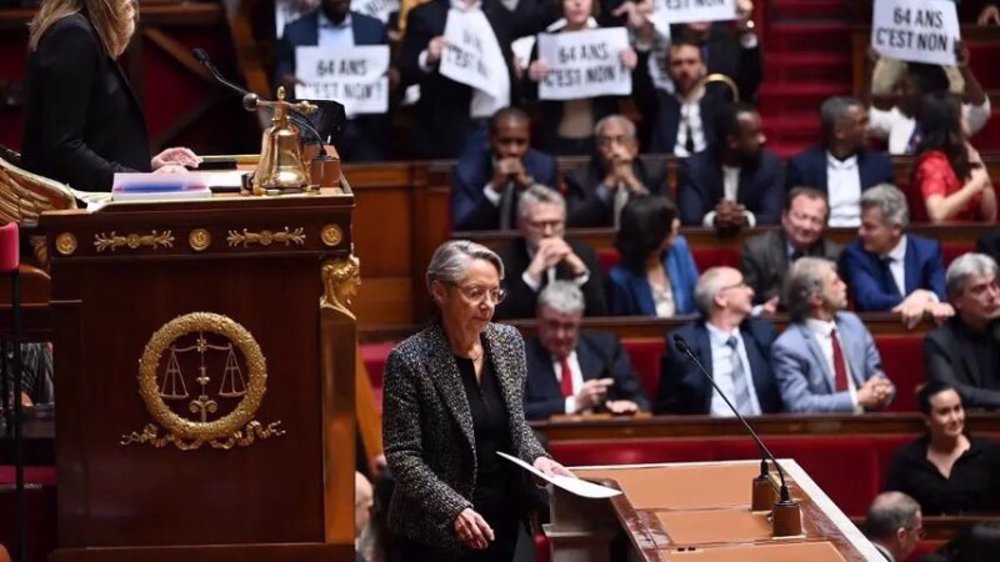France unrest: Refinery strikes continue as Macron survives no-confidence vote
Strikes at French refineries continue as part of a nationwide movement against pension reform by President Emmanuel Macron.
Shipments of refined products from refinery and depots across the country were blocked on Monday, a company spokesperson said, adding some refineries, however, operated with a reduced flow.
Refineries around the country have been on rolling strikes for 13 days, while industrial action by garbage collectors has led to trash piles building up around Paris.
The strike has caused an increasing expectation of diesel supply shortages nationwide as well as across Europe.
"We expect product shortages by April (in France)," one trader said.
"The diesel market flipped from feeling long and heavy to short and very backward," said another trader.
Strikes also continued by transport workers and teachers.
Unions have vowed to continue action and called for widespread strikes on Thursday.
At French liquefied natural gas (LNG) terminals, the strike was extended until March 27 at the three terminals operated by Engie subsidiary Elengy, a union representative said.
This came as President Macron's government faced two motions of no-confidence in the National Assembly on Monday afternoon. He is under fire for a decision to force changes to the pension system through parliament without a poll. Macron invoked a controversial executive power to force through the bill, whose key measure is to increase the minimum retirement age from 62 to 64.
Two no-confidence motions were filed against his government — one by a coalition of centrist and left-wing parties, and a second by the far-right National Rally.
Macron, however, survived both no-confidence motions after the 577-seat National Assembly lower house overwhelmingly rejected the motion brought by the far-right. Earlier, the government had narrowly survived a multiparty motion by just nine votes, speaker Yael Braun-Pivet announced. She confirmed this meant that the reform had now been adopted by the legislature.
If his government had lost the vote, Macron would have appointed a government with a new prime minister or dissolved parliament, triggering elections.
Opponents of the pension reform, say the changes will negatively impact women, public sector workers and people on lower pay.
They also argue that the government is prioritizing businesses and people who are highly paid over average laborers.
Yemeni FM: Israel’s sponsors accountable for ongoing aggression on Sana’a
Eight Palestinians killed as Israel attacks Gaza school, hospitals
VIDEO | Rome, Milan host new protests in solidarity with Palestinians
Dec. 21: ‘Axis of Resistance’ operations against Israeli occupation
Spain jurists demand ties with Israel ties be cut
VIDEO | Press TV's news headlines
VIDEO | Iran honors top Science Olympiad medalists
VIDEO | Austrians arrested at Gaza protest in Vienna













 This makes it easy to access the Press TV website
This makes it easy to access the Press TV website